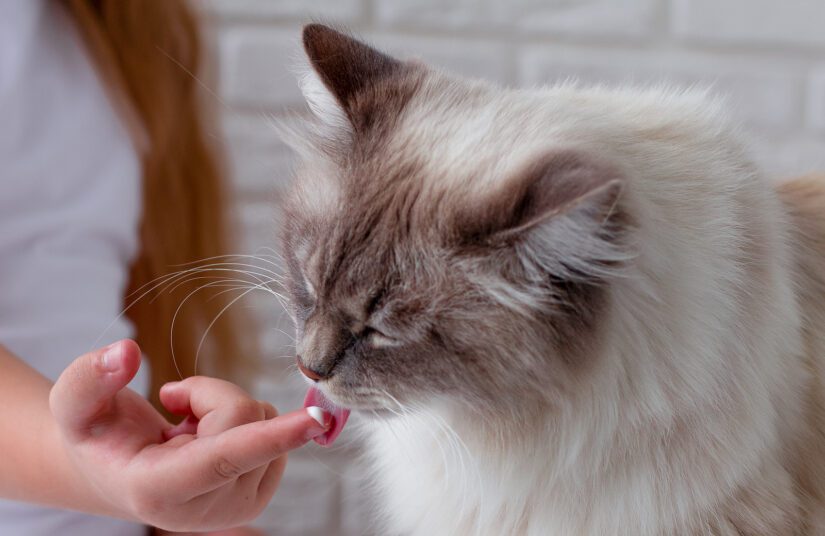Our feline family members can be finicky about what they eat – but if they want human food, it might not be the best idea.
“Feeding your kitty anything not specifically formulated for felines can affect their digestive system and cause symptoms including vomiting, diarrhea or loss of appetite,” says Dr. Hannah Weitzenfeld, BC SPCA senior manager, animal health. Take a look at the list below to learn what toxic foods to avoid feeding your cat.

What to avoid:
- Alcohol – Alcohol can cause intoxication, lack of coordination, poor breathing, abnormal acidity and potentially even a coma or death.
- Chocolate – chocolate is dangerous to feed to cats as it usually contains caffeine as well as theobromine and theophylline, which can be toxic and cause heart arrhythmias, muscle tremors, or seizures.
- Citrus oil extracts – Can cause vomiting.
- Coffee, tea, energy drinks – These and other caffeinated drinks and foods can cause your cat to become restless, have rapid breathing, heart palpitations, or muscle tremors.
- Fat trimmings, raw meat, eggs, fish – There is a risk vomiting, diarrhea, salmonella or E. coli associated with these foods for some animals, especially when given improperly.
- Grapes and raisins – While cats are not likely to eat these, they can cause kidney damage and it’s best to keep these out of reach.
- Marijuana and edibles containing cannabis-infused butter or oil – Marijuana, if ingested, can adversely affect your pet’s nervous system and heart rate. Products made with concentrated THC (the psychoactive component in cannabis), such as cannabis butter, are often very attractive to cats and dogs but are even more dangerous and can cause seizures, coma, and even death. Edibles can also contain chocolate or xylitol, which can have additional harmful effects.
- Milk, cheese and other dairy products – Cats don’t tolerate dairy very well and can become lactose intolerant. Ingesting dairy products can cause vomiting and diarrhea for affected felines.
- Onions, garlic and chives – All members of the onion family can cause problems if eaten in large quantities, as these contain disulfides and sulfoxides (thiosulphate), both of which can cause anemia and damage red blood cells. Even meat products containing onion powder (such as some baby foods) are dangerous for cats.
- Rhubarb and tomato leaves – These contain oxalates, which can adversely affect digestive, nervous, and urinary systems.
- Tobacco – Nicotine can damage your pet’s digestive and nervous systems, increase their heart rate, make them pass out, and ultimately result in death.
- Tuna – When made into cat food, tuna is fine for cats. But too much canned tuna (prepared for humans) can cause health problems for your cat.
- Yeast (on its own or in dough) – Yeast rises, whether in your cat’s stomach or not, which can cause gas and discomfort.
Should you suspect your cat has ingested something toxic, call your veterinarian or an emergency veterinary clinic immediately. How quickly treatment is started can mean the difference between life and death.
Extra Resources:
Get updates from the BC SPCA
Want to receive more pet tips like this, right in your inbox? Use the form below to subscribe for updates.
